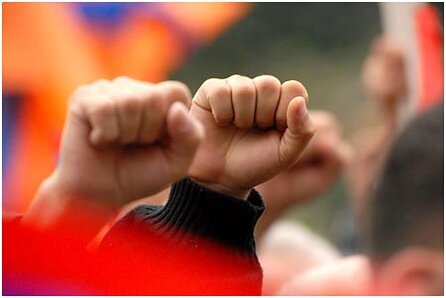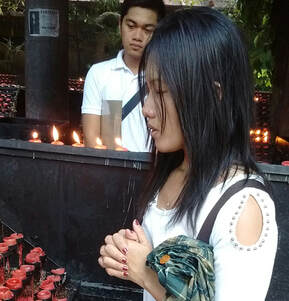|
How far can action learning (a form of small-group peer coaching) be useful in fast-paced and complex humanitarian contexts, in countries as diverse as Bangladesh, DRC, Iraq, Jordan, Malaysia, Myanmar, Somalia and Syria? What would it take to make coaching and action learning effective in these different cultural environments? These were questions I was invited to explore and test with ALNAP and ALA’s Ruth Cook during the past 18 months.
The idea was to train field-based practitioners in action learning techniques, then to mentor them as they adapted and applied them in disaster zones. Our goal was to learn from this experience too. Travel restrictions meant that workshops were all conducted online, which created its own challenges vis a vis patchy internet connectivity and access to training resources via cell phones, yet we-they persevered and the experience proved fruitful. I was particularly interested in cross-cultural dimensions and dynamics in these training groups. Workers in humanitarian crises face intense time pressures and it could have been tempting to short-cut personal introductions and press ahead with the task. In some cultures, investing in relationship and trust-building is integral to the task and, therefore, inseparable from it. We chose, therefore, to create opportunities, where possible, for participants to get to know and understand us and each other from the outset. In Western models of action learning, emphasis is often placed on posing coaching-type questions that are short, sharp and direct. If, however, we don't pay attention to relevant cultural norms including relational preamble (e.g. ‘I am pleased to be here. Thank you for the opportunity to ask this question…’) such questions can be experienced as blunt, harsh or rude. It's important, therefore, to allow for different cultural framings and expressions. We were aware that, in contexts such as the UK and USA, action learning tends to assume an egalitarian culture within a group, within which participants are and feel free to invite and pose challenging questions to one-another. In some cultures, however, where perceived authority and social status are based on e.g. age, gender or tribe as much as on formal hierarchy, careful composition of and contracting in groups are critical success factors. In some cultures, to pose a question directly to an authority figure could be perceived as insubordinate, disrespectful or even insolent. Authority figures may be expected by others always to have the ‘right’ answers and to pose a question in a group risks shaming that person, a loss of face, if they are unable to answer it. One way to avoid this issue is to invite participants to write down questions and hand them to the person first, who can then chose which to respond to. In some cultures, it would feel inappropriate for a participant to decide unilaterally on an action at the end of an action learning cycle without having first run the idea past their line-manager for approval. This may partly be indicative of where decision-making authority is held in that hierarchy. It can also signal deference to or respect for an authority figure. One way to address this would be for a participant to relate back to the group at a subsequent meeting on what actions have been agreed. When using a peer-consultancy version of action learning, in which participants are invited to offer suggestions for consideration as well as questions, particular challenges can arise. In some cultures, participants may feel compelled to accept the first suggestion that is offered, or to agree to whatever is suggested by a perceived authority figure. Again, writing down questions to offer a presenter can help to address this. When using an appreciative version of action learning, in which participants help a person to identify what personal and contextual factors contributed to the success of an initiative, there can be challenges too. In some cultures, it can turn into a praise-party, with participants wanting to affirm the presenter rather than to tease out success factors. One way to address this is to allow space for praise first, then to move onto the more structured process. In other cultures, a presenter may feel uncomfortable to comment on what they did well personally in case it sounds immodest. Two possible ways to address this are to invite the presenter to comment on what other people may have noticed about his or her contribution, thereby attributing the qualities to a third-party perspective rather than their own, or to depersonalise it as ‘This happened’ rather than ‘I did this.’ I am deeply indebted to all of the participants in this initiative who contributed so richly to our learning and ideas. What have been your experiences of coaching, training or action learning in different cultural environments? What have you learned - and what would you recommend to others? (See also Nick's: Cross-Cultural Action Learning webinar, December 2021)
19 Comments
‘Kairos moments’. Pivotal experiences... I wasn’t trying to be difficult. It felt like an issue of justice. I was in my late teens and this was a trade union meeting in a local town hall. The room was packed full and I sat upstairs in a balcony. The union leaders were in powerful positions, sitting in a row at the front table. Nobody dared to speak or to raise a challenge. To lose membership meant to lose one’s job. ‘We have mortgages to pay and mouths to feed.’ I valued the trade union ideal but, somewhere along the way, this body had lost its visionary, democratic principles. I disliked the way its leaders abused power and traded on fear. After making long, tedious speeches, reminiscent of a bygone communist era, the main leader stood up and asked if anyone had anything to say. A tense and tangible silence filled the room. I could feel my heart pounding and nerves straining throughout my body. I had to say something, I had to speak. So, much to my colleagues’ amazement, I stood up, took a deep breath and advocated a proposal for democratic reform. The whole room gasped…then fell back to stunned silence. The leader, now red with rage, shot me down for daring to challenge his authority – and inadvertently proved my point. I was treated like a hero as I left that day, work mates crowding around, punching my shoulders and patting my back with looks of surprise and admiration. It was a defining moment for me. I had stood up to authority, taken a public stance on my beliefs and values and, by God’s grace, managed to stay diplomatic and assertive. There could be no going back now. I organised a union-wide petition and, as a result, came under threat from union reps who warned me that I was ‘playing with fire’. I resigned, left my job and entered human rights and community development work. I can see a trajectory in my life that had led up to that point, e.g. from when, as a young school boy, I had hated bulling and cruelty to animals and had created an animal rights activist group at school. I can also trace a clear trajectory through my life and career in subsequent years, e.g. in leadership, coaching and OD roles in charities and INGOs, based on my spiritual-existential-humanistic beliefs and values. I still hold that same passion to support people who are poor, vulnerable or oppressed in the world. What have been the defining moments in your life and career? How did you get here? How can I help you work out your career-calling? Get in touch! [email protected] ‘I have three things I’d like to say today. First, while you were sleeping last night, 30,000 kids died of starvation or diseases related to malnutrition. Second, most of you don’t give a shit. What’s worse is that you’re more upset with the fact that I said shit than the fact that 30,000 kids died last night.’ (Tony Campolo) The first time I heard those words some time ago, I was left speechless and reeling. Firstly, with the scale of the awfulness of the human tragedy and secondly – ashamedly – that I too was shocked to hear a Christian leader use the ‘S’ word. How easily we get distracted, preoccupied or fixated by things that really aren’t important and miss those that are. For those familiar with Jesus’ teaching, logs and splinters come sharply to mind. My last blog, ‘Whatever’, touched on a similar theme. I visited the Philippines for the first time in 2016. I had visited and worked in various other countries in South East Asia with international charities but this was a new experience for me. One day in the hot sunshine, I sat on a kerb to listen to a talented marching band practising at the roadside. I was vaguely aware of people nearby but didn’t really take much notice. My attention was fixed firmly on the rhythmic band and music and on taking video that I could show friends on returning home. After a while, I turned to speak to the young woman, a very poor Filipina, who had brought me to that place as her special guest. I was astonished to discover that she had vanished…and then even more astonished to see her with the other people, strangers, nearby. I became aware they were mostly elderly poor people trying to eke out a living by selling what little they could. This girl was on her knees, offering them the very food and drink we had brought for ourselves. I felt humbled and amazed. This experience, alongside others in the Philippines since, has inspired and rekindled my desire to ‘cut the cr*p’ in my life and to live for Someone, something worthwhile. I hate that the poor are so vulnerable. It feels like a spiritual, existential journey for me. What journey are you travelling? Who is inspiring you? What are you inspiring in others? It was really muddy this weekend and the woodland tracks were almost impassable. Almost. It’s precisely the almost-ness that makes this sport so challenging and exhilarating. I’m not that skilled on a mountain bike. I can do enough to complete rough tracks on hilly ground without falling off too often. Last year I went over the handlebars, not on purpose, when I hit a tree root hidden by bracken. It left me breathless, yet the element of risk adds to the thrill and adventure.
Each time I go out, I get that bit better. My legs get stronger and I improve my balance. I skip over a log where before I would have stepped off the bike to lift it over. I wince less when I get caught by brambles, digging their thorns through my trousers and shirt. I get a better sense of which puddles to ride through and which to avoid. I push on ahead whereas in earlier days I might have given up. I’m improving my stamina, my fitness and my biking technique – and it feels great. Spurred on by a friend who has also joined this cycling sport, I signed up this week for a sponsored ride for a UK charity (http://www.justgiving.com/Nick-Wright40). It’s a stretching target for me, the longest distance I will have ridden since I was 15. It feels like testing myself, seeing what I’m capable of, paving the way perhaps to even greater challenges in the future. I think that’s where the fun is, that ‘not sure if I can make it’ feeling combined with a gritted determination to succeed. I’m reminded of leadership, of parenting and of coaching. How can we keep ourselves and others at the cutting edge, the edge where we and they feel stretched and challenged yet most alive? How can we motivate ourselves and others to keep growing, to keep pushing boundaries of experience without feeling over-stretched or snapping? How can we develop our own and others’ resilience to persevere and to reach new heights that we or they would never have dreamed possible? |
Nick WrightI'm a psychological coach, trainer and OD consultant. Curious to discover how can I help you? Get in touch! Like what you read? Simply enter your email address below to receive regular blog updates!
|






 RSS Feed
RSS Feed